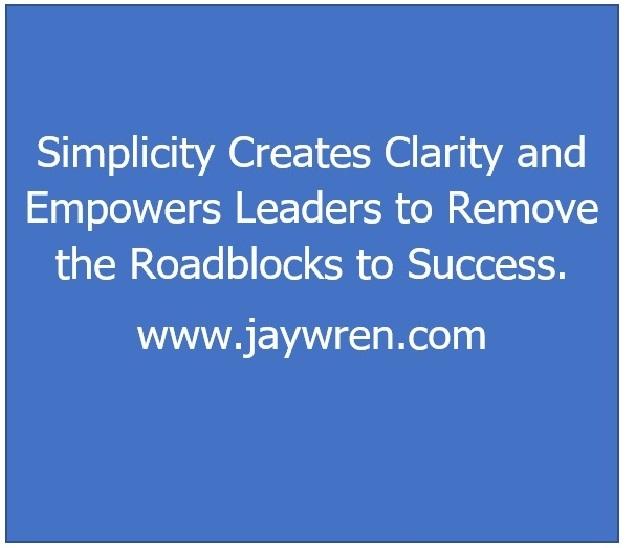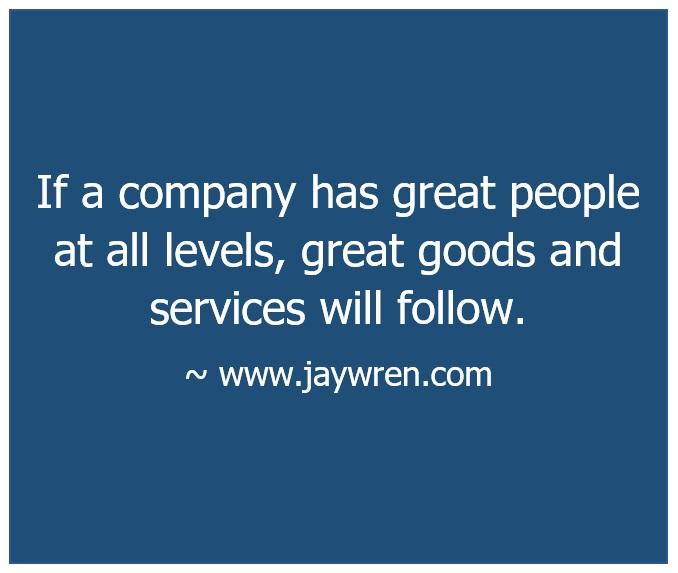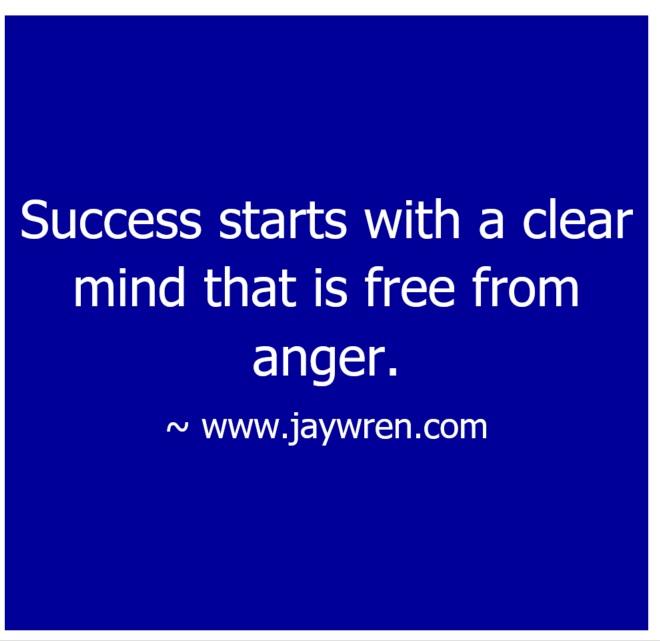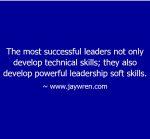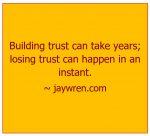People: What are the steps for building teams? How do you know which person is best for the work you need done?
If a company has great people at all levels, great goods and services will follow. ~ www.jaywren.com
The Challenging Work of Selecting Great People
As a recruiter who worked with wonderful human resources people and hiring managers, I know the challenges people face in making great hires. Over the years, I built a check-off list of traits I considered when making referrals. Using this list, I increased my placement to referral rate. Furthermore, I increased the long-term success of the people my clients hired.
Here is that check-off list that you as an HR or hiring manager may want to use. If you believe that anyone in your company will find this list helpful, please share it with them.
1. Intelligence
I believe in hiring smart people at all levels.
As a junior Navy officer, I had a petty officer working for me who had an MBA. He edited the ship’s newspaper on the carrier USS Midway. Although he was intelligent to do my job, he didn’t want to pressure of a Navy officer.
Every secretary I hired had the intelligence to do my job. These people just didn’t want a job with the responsibilities I had.
However, their intelligence gave them the ability to make decisions and recommendations. I was fortunate to have these bright people work for me.
2. Professional Skills
There is very little exception to making great hires without fundamental skill sets. If you are hiring a coder, the person must know how to code.
If someone already has the skills to use the applications and processes that your company uses, the person will become effectively more quickly. Furthermore, this person will save your company money from lost time in training a new hire.
3. Soft Skills
I have three articles on this subject. If you are not familiar with soft skills, these articles might be helpful.
15 Leadership Soft Skills that Create Greatness
The Top 6 Soft Skills
Job Searching: Hard Skills and Soft Skills
4. The Ability to Grow
Ideally, you are hiring someone who can grow into a bigger role and expand into dissimilar roles within your company. The ability of employees to grow helps a company make long-term hires.
5. Current Compensation
Hiring someone who is at a pay grade lower than you are paying will allow you to reduce costs. Furthermore, you will be able to give the person raises for a longer time without having to promote the person into a higher pay grade.
6. Cultural Skills
A person who has cultural skills is someone who can work with people across diverse cultures.
As companies grow, the challenge in dealing with diversity becomes greater.
For great long-term hires, human resources managers and hiring managers must hire people who can adapt to changes within the company. Often those changes involve cultural diversity in the workplace.
7. Team Skills
People who have team skills, know their own role as a team member. Furthermore, they can support other team members when needed.
If you look closely at a baseball game, you will see that players work in pairs. The pitcher knows when to race behind home plate to back up the catcher. The right fielder knows when to move behind first base to back up the first baseman.
If you have ever watched a base runner caught between two bases, you will see players from several positions form a team to trap the runner.
Each player knows what to do in their primary role and their back up role.
8. Mental Stability
Hire people who can make sound decisions in their work and in their personal lives for the long-term.
In an interview process, you are looking for examples over the course of years of how your prospect has made solid decisions in a variety of rolls.
9. Commitment
People who have commitment can make things work in challenging times.
Jobs are not always fun. Sometimes, they are stressful, challenging, and demanding. Every job brings its own set of problems.
However, people who start with a commitment will find ways to adjust and still be healthy when riding out difficulties.
10. Flexibility
Some people are naturally flexible. The boss tells them they are working late on Friday. They think nothing about working late on Friday.
However, in the alpha society of the competitive organizations, strong leaders make decisions based on what they believe is in the best interest of the company. Their flexibility stops where the interest of the company begins.
11. Motivation
Motivation generates the energy to create a positive mind set in even the toughest times. When the job is easy and exciting, motivation is easy and exciting. However, when challenging times come along, the best people find the motivation to rekindle their own spirit and encourage other people.
12. Resilience
The resilience issue centers around situations in which the prospect had stumbled and bounced back. Ask the prospect about tough times and how they worked through them.
13. Reliability
This trait appears easy to check when doing references. However, the evidence of reliability is readily available in the prospect’s resume. Has the person worked for a company for ten years and had progressive responsibility? The logical conclusion is that the prospect is reliable. On the other hand, if the prospect has ten years of moving laterally through several companies, you should see a red flag on the person’s reliability.
14. Integrity
Once, in the evening after my secretary had left the office, I went to her desk drawer to find a pen. This drawer was also where she kept the stamps.
When I opened the drawer, I saw a note that read, “I owe Jay 2 stamps.”
The note reinforced what I knew every day. My employee had solid integrity.
15. Punctual
Before making a job offer, you must know without a doubt that the prospect is punctual. Nothing damages morale more than having to deal with people who are always late.
16. Presentable
Defining presentable is part of creating a company culture. The players on Wall Street dress differently than the leaders in Silicon Valley.
There are no universal standards. The people you hire must be able and committed to adapting to the standards of your company.
17. Work Ethic
People who love to work, make a manager’s job much easier. It is easier for a manager to turn off the lights and tell an employee to go home than having to plead for a worker to stay late. Make it easy on yourself. Hire people with a magnificent work ethic.
18. Love of the Job
Hiring people who will love their work is one of the wisest decisions in the hiring process. There is no greater motivator than passion. People who love their job can make up for shortcomings in some of the other areas. These people intuitively focus on doing their work to the best of their ability.
